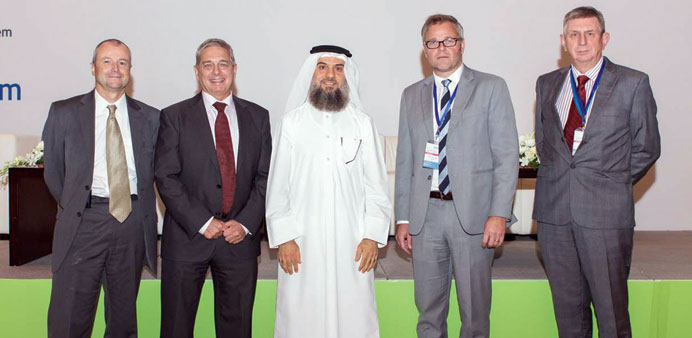Evidence generated from research in health services can be helpful in ensuring better healthcare, according to a top Hamad Medical Corporation (HMC) official.
Speaking at a conference on ‘the development of health services research and their implications in Qatar’, Gary Needle, chief of planning and performance at HMC, said, “How to best utilise our infrastructure and resources remains a constant question in a rapidly growing society, and the answer almost invariably requires detailed study and academic enquiry.”
He added: “The results of studies and in-depth research helps those of us engaged in delivering healthcare to better develop new and more refined ways of working with patients, their families and communities, with the ultimate goal of improving patient outcomes and the entire
patient experience.”
The one-day symposium sought to highlight the current state of research activity in Qatar and the growing movement towards developing stronger research ties across multiple organisations and healthcare disciplines, as well as to further an understanding among healthcare experts as to the importance of health services research as a means of recommending improvements in healthcare delivery to patients and families.
Two international speakers gave keynote addresses. Prof David Thompson from the Australian Catholic University spoke about how the accumulation of research has led to a better understanding of the rehabilitation needs for cardiac patients, while Dr Rachel Churchill from Bristol University discussed how the use of evidence discovered through research can inform policy and practices in a health setting.
Experts from Academic Health System (AHS) partners - HMC, Weill Cornell Medical College in Qatar, Sidra Medical and Research Center, Primary Health Care Corporation and Qatar University - discussed how research into the delivery of health services in Qatar could be used to improve the overall efficiency of the country’s public healthcare system.
The conference brought together a variety of disciplines including medicine, nursing, public health and epidemiology.
“The entire patient journey through the healthcare system, which includes everything from how they make an appointment through to the treatment they receive, are key focus areas for health services research in Qatar,” said Prof Ibrahim al-Janahi, executive director of medical research at HMC.
The speakers also outlined case studies where the results of health services research had led to applying changes in a process or in a clinical practice.
The symposium was organised by the Health Services Research Centre, an initiative of the AHS programme office. The centre was launched in 2014 and has a local research network of over 600 members, who contribute their expertise to research activities in Qatar.

Some of the speakers at the symposium.
